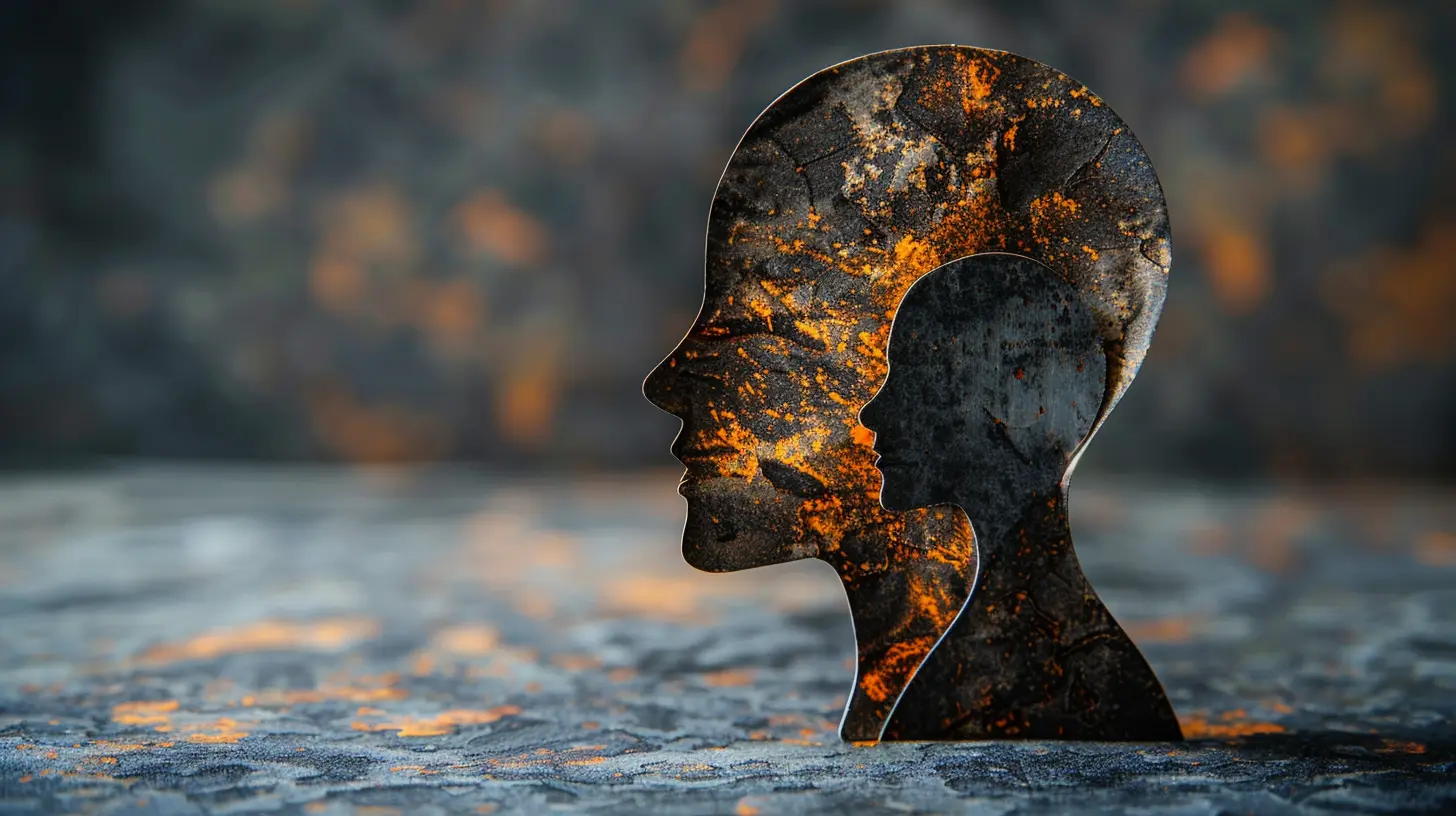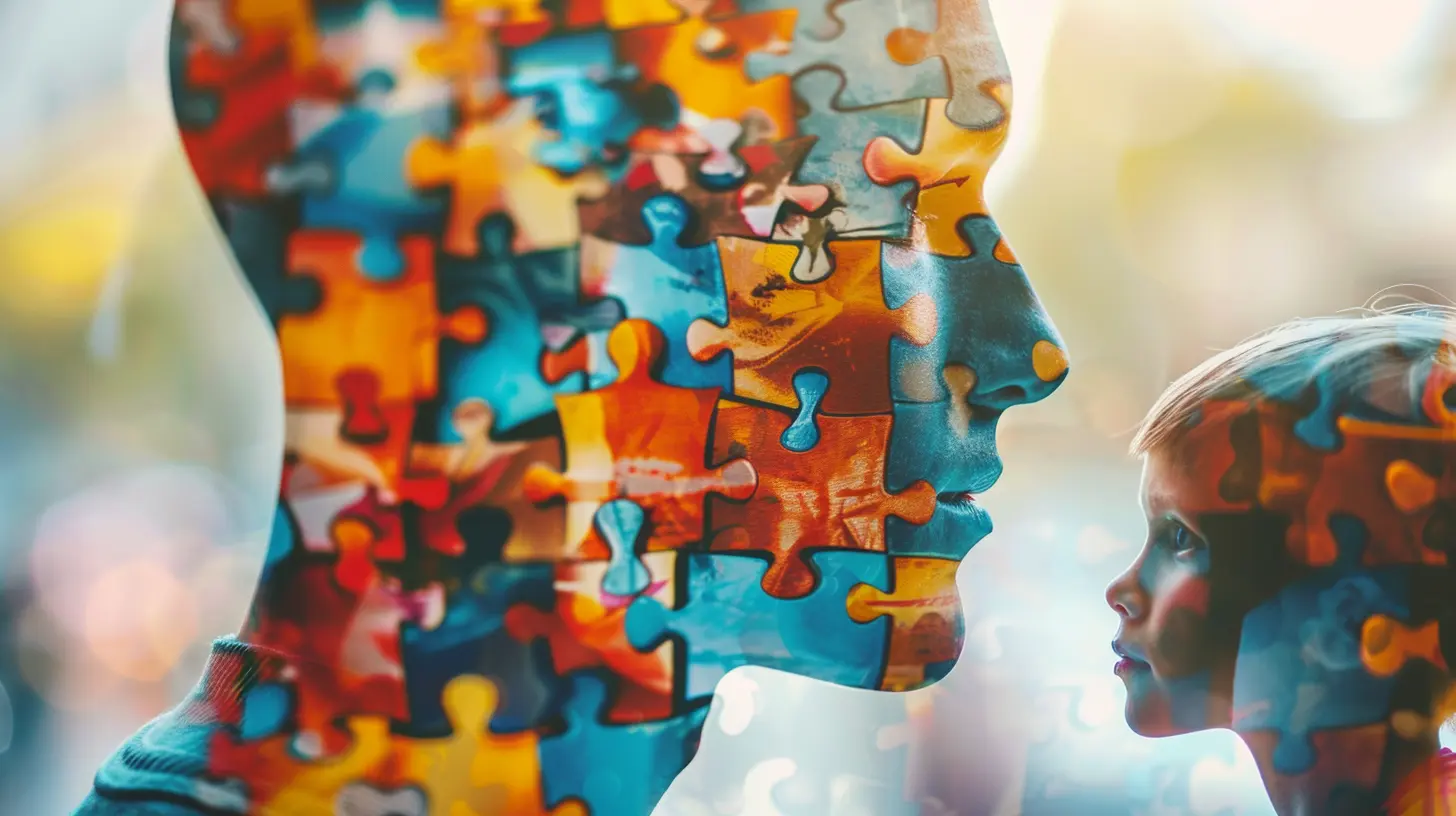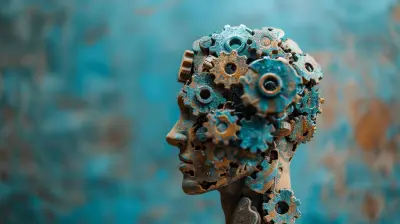The Impact of Parental Mental Health on Child Development
13 July 2025
Let’s be real — being a parent is tough. Between juggling work, home responsibilities, and trying to maintain some sense of sanity, it’s no surprise that mental health can take a hit. But have you ever stopped to think about how your emotional well-being might be affecting your kids?
In this post, we’re diving into the deep (and sometimes messy) waters of how parental mental health can influence child development. Whether you’re a parent, a caregiver, or just someone interested in psychology, stick around — this is stuff we all should know.
Why Parental Mental Health Matters
Here’s the thing: children are like emotional sponges. They soak up the vibes around them — good, bad, and everything in between. If a parent is struggling with anxiety, depression, or any mental health issue, there’s a good chance it’s going to ripple into their child’s life.And no, this doesn’t make anyone a “bad” parent. Mental health challenges are incredibly common and nothing to be ashamed of. But understanding their impact can help us face them head-on — not just for our sake, but for our kids too.
The Early Years: Where It All Begins
Let’s start from the very beginning — infancy and toddlerhood. These early stages are like the blueprint for a child’s future development. A baby’s brain is wiring itself based on interactions with caregivers. Think of it like a tiny computer mapping out the world.So, what happens when a parent is dealing with mental health struggles during this critical window?
Emotional Availability Takes a Hit
You know how hard it is to be fully present when your mind is spiraling? Now imagine trying to do that while taking care of a baby 24/7. Parents with depression or anxiety may find it difficult to be emotionally available, which can affect the child’s sense of security.Attachment Issues Can Form
Secure attachment develops when a child consistently gets comfort and care from their caregiver. When mental health problems interfere, attachment might become inconsistent or insecure. This can lead to behavioral issues and trouble forming healthy relationships later in life.
Preschool to Elementary: The Emotional Ripple Effect
Kids are smart — like, way smarter than we often give them credit for. Even if they don’t fully understand what’s going on, they can sense when something’s off.If a parent seems withdrawn, overwhelmed, or emotionally unpredictable, kids start to notice. And that’s where emotional ripple effects start to kick in.
Anxiety and Behavior Struggles
Children might not say, “I think my parent has depression,” but they may start acting out or withdrawing themselves. Emotional and behavioral issues in children can often be traced back to the stress of living with a parent who’s not mentally well.It’s not about blame — it’s about understanding the connection.
School Performance May Decline
Think about it: if a child is preoccupied with worry at home, how can they focus at school? Academic struggles can start as a result of emotional turmoil at home. The brain just doesn’t work its best when it’s under chronic stress.
Teen Years: The Impact Deepens
By the time kids hit their teenage years, they’re not just affected by parental mental health — they’re watching and internalizing how those issues are handled.Coping Behaviors are Learned
Teens often model their coping skills after what they see at home. If a parent self-medicates, isolates, or reacts with anger, teens may adopt similar habits. On the flip side, if a parent seeks help and talks openly about their struggles, teens are more likely to pick up those positive habits too.Mental Health Risks Increase
There’s also a genetic and environmental mix at play here. Teens with a mentally ill parent are more prone to developing their own mental health challenges. The risk isn't just biological; it’s shaped by the home environment.The Role of Stress in the Household
Let’s zoom out a bit and talk about stress — because it's often the common thread between parental mental health and child outcomes. A home filled with chronic stress can feel like walking on eggshells. It’s unpredictable. It’s exhausting.Stress Becomes the Norm
When parents are emotionally dysregulated, yelling often, or emotionally unavailable due to mental health issues, children may start to see this as normal. They adapt — but not in a healthy way. Their nervous systems get stuck in fight-or-flight mode, which can affect everything from sleep to digestion to social skills.Toxic Stress vs. Tolerable Stress
Not all stress is bad. Getting a little nervous before a test? That’s tolerable stress — a helpful little jolt. But ongoing, intense stress with no buffer of support? That’s what we call toxic stress. And it has long-term effects on brain development, immune function, and even physical health.Breaking the Cycle: What Parents Can Do
Okay, deep breath. This all sounds kind of heavy, right? But here’s the good news: breaking the cycle is totally possible. Mental health issues don’t doom a child. There are steps parents can take to reduce the impact and heal together.1. Get Help — Without Shame
This might sound like a broken record, but therapy works. Medication can help. Support groups are amazing. Getting mental health support isn’t weakness — it’s strength. It sets a powerful example for kids and opens the door for more honest conversations at home.2. Talk About Feelings Openly
Kids don’t need every detail, but they do need honesty. Saying something like, “Mommy’s having a tough week, but she’s going to feel better soon,” teaches them that it’s okay to feel and it’s okay to ask for help.3. Maintain Routines
Routines provide a sense of safety and predictability — something kids crave when things feel uncertain. Even just sticking to bedtime routines or mealtimes can create that sense of structure.4. Build Their Resilience
Resilience isn’t something kids have or don’t have — it’s something we help them build. Encourage problem-solving, talk about emotions, and teach them how to bounce back from challenges. It's like building an emotional immune system.What If You're the Child of a Parent Who Struggled?
Now let’s flip the script. Maybe you’re not a parent but someone who grew up in a house where mental health was ignored or stigmatized. First of all — you’re not alone. And second, your childhood doesn’t define your future.You might carry the emotional residue into adulthood — anxiety, people-pleasing, or low self-worth. But healing is possible. Therapy, self-care, and healthy boundaries can go a long way. Remember: awareness is the first step toward change.
Final Thoughts: Compassion Over Perfection
Parenting isn’t about being perfect. It’s about showing up, even when you're struggling. It’s about trying again after bad days. And most of all, it’s about compassion — for yourself and your kids.Understanding the impact of parental mental health on child development is eye-opening, but it’s not meant to scare you. It’s meant to empower you. To show that the most powerful tool a parent has isn’t perfection — it’s connection.
So whether you’re navigating your own mental health journey or supporting someone who is, know this: you’re doing better than you think. Every effort matters. Every moment counts. And it’s never too late to change the narrative.
all images in this post were generated using AI tools
Category:
Clinical PsychologyAuthor:

Alexandra Butler
Discussion
rate this article
2 comments
Josephine McGrath
Like shadows cast by a flickering flame, parental mental health shapes a child's world in unseen ways. What hidden patterns linger beneath the surface, influencing their journey? Explore the delicate thread connecting mental wellness and development.
November 5, 2025 at 4:39 AM

Alexandra Butler
Thank you for your thoughtful comment! Indeed, the intricate interplay between parental mental health and child development is profound, with unseen patterns shaping emotional, social, and cognitive growth. Exploring these connections is essential for fostering supportive environments for our children.
Bria Conrad
Parental mental health shapes a child's emotional landscape, influencing not just immediate behaviors but also long-term resilience and interpersonal relationships throughout their life.
July 25, 2025 at 4:43 AM

Alexandra Butler
Absolutely, parental mental health plays a crucial role in shaping a child's emotional well-being and future relationships. Thank you for highlighting this important connection!


